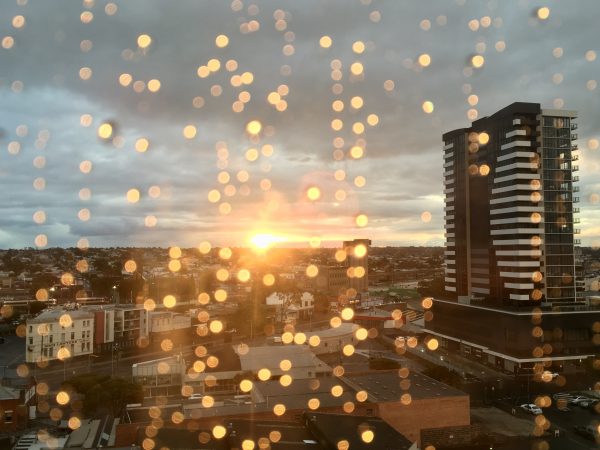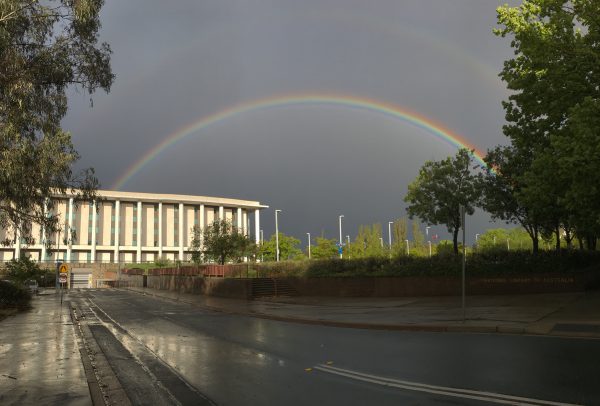Lately I find myself donating many hours of my time to the ALIA Professional Pathways project, a multi-year effort to overhaul the education and accreditation of Australia’s library workers. I made a public submission to the initial stages of the project last year, commented privately on a draft version of the Frameworks Project Technical Report earlier this year (all 300+ pages of it!), attended a focus group a couple of weeks ago. The final version of the Technical Report was released this week, and includes this comment, attributed to me:
Concerns have long been expressed that the technical skills for cataloguers and metadata librarians are downplayed or even ignored by library educators and library managers (A. McCulloch, personal communication, January 16, 2022). [pages 32-33]
That paragraph includes assorted citations of competencies and skills frameworks for cataloguers and metadata librarians (contributed by yours truly), before going on to state that the rest of the Technical Report would discuss ‘selected frameworks pertaining to public libraries, academic and research libraries, health, legal and government library and information services’ as well as ‘staff working in school libraries, archives and records management’. So, not metadata librarians as a speciality, whose work often takes us across sectors.
I didn’t realise the report would cite me by name, and I worried about whether I had been too sharp in my feedback. But the last few weeks have demonstrated to me that I’m not wrong.
There is a huge disconnect between the core library skills and competencies outlined in reports like these—presumably informed by what library managers and educators say they want—and the skills and competencies that said managers are prepared to pay for and said educators are willing to teach. Sure, the Technical Report mentions metadata a fair few times, but largely in the context of related areas like research data management and digital humanities, rather than on-the-ground metadata work in libraries. Cataloguing was included in several core competencies lists for librarianship, but almost from muscle memory: a reflection of what libraries are ‘supposed’ to do, rather than what actually happens.
One of the people in my Professional Pathways focus group relayed a story about a pair of new graduates in their library service who had admitted that they didn’t know what metadata was and didn’t know how to catalogue. I think I responded with a surprise emoji, but truthfully it’s not that surprising. Elsewhere I had already anecdotally heard of many public library workers who have wound up with cataloguing duties but have chronically low levels of catalogue literacy. They don’t know enough about MARC to know what to do—and they know they don’t know—so they’re too scared to touch anything, and their data decays.
I know there’s only so much a university or TAFE institution can squeeze into a library course, and that our degree offerings are necessarily generalist owing to the small size of our sector, but these and other anecdata suggest that our current cataloguing education is insufficient. The Technical Report discusses the new BSB50520 Diploma of Library and Information Services training package, noting that ‘a group of detailed units relating to cataloguing activities have also been removed from the training package’ (page 210). It was hard to tell from the training.gov.au website what exactly had been removed; I could see only one unit of competency expressly relating to cataloguing in the new package, rather than two in the old. Either way, whittling down the level of data and catalogue literacy required of new library technicians will only worsen these problems.
The standard course offerings at all three remaining Australian LIS schools (Curtin, CSU, UniSA) include an entry-level metadata subject and a specialist cataloguing subject. By comparison, the University of Washington lists no fewer than six metadata-related courses in its handbook (admittedly they’re a much bigger school). Other library schools have more expansive metadata curricula: University College London makes a point of including ‘radical cataloguing’ in its syllabus, while Victoria University of Wellington, Aotearoa New Zealand’s only graduate library school, teaches its specialist cataloguing students how to apply Ngā Ūpoko Tukutuku, Māori Subject Headings.
I’m not sure new library graduates in Australia would commonly know what MarcEdit is, or understand the principles of how an ILS handles MARC records, or appreciate how to appropriately use AIATSIS subject headings. I taught myself everything I know about critical cataloguing (and have taught many others in turn). Our education still focuses on traditional cataloguing at the record level, but critical appraisal and batch remediation of metadata are increasingly important aspects of our work. It might be time for a new lens.
I continue to worry about whether librarianship considers itself a ‘technical’ profession. My experience suggests that it doesn’t, even though I’ve worked in ‘technical services’ for most of my career. The Technical Report mentions the technology competencies listed in the 2014 WebJunction Competency index for the library field whereby anything beyond ‘using email and the internet’ is expected to be the IT department’s responsibility, describing systems librarians as an ‘accident’ that would only happen in small libraries. It’s inaccurate and insulting, but it betrays a more disturbing truth about how some parts of this sector conceptualise librarianship as being solely a ‘customer service’ profession, excluding core infrastructural work from this definition. In this model, ‘IT people’ look after systems, acquisitions work is outsourced to vendors selecting whatever fits a ‘profile’ and catalogue records are commodified, purchased, uploaded as a one-and-done process, and left to decay. None of these workers would be considered ‘librarians’ because their technical work is pushed outside the physical and ontological bounds of the library. It therefore becomes ‘not library work’.
Cataloguing has had to persistently prove its worth over the years like no other area of librarianship. At one point people tried victim-blaming cataloguers for the fact nobody liked them, but more recent studies note that all library workers have a role to play in improving communication about, and perceptions of, cataloguing work (this feels rather like the famed ‘double empathy problem’ in autism studies). My work inhabits a third space, client-focused though not client-facing, deeply technical yet deeply personal. Metadata forms the nexus between a person and a resource, mediated through data and ontologies and systems, sometimes guided by a library worker but usually ‘discovered’ by users themselves. Encoding this knowledge is skilled, technical work. I know by now not to presume that such data curation is self-evidently important.
The Technical Report discusses ‘skills for future professional practice’ at considerable length—digital curation, data librarianship, digital humanities librarianship, information governance, et cetera—but they’re really future areas of practice underpinned by a solid foundation of technical skills, including (meta)data creation and maintenance, ontologies, data literacy, data ethics, database design and related systems architecture. Precisely the kinds of skills that cataloguers and metadata librarians ALREADY HAVE. The areas of practice listed in the Report appear to be more about building the next new shiny thing than about maintaining the umpteen broken shiny things that came before it, especially when this maintenance is already thinly resourced. For years it’s been fashionable to shit on cataloguers, and now you’re telling me that our skills are the future of librarianship? People sure do have a funny way of showing their appreciation.
And yet: am I wrong, now? Are things really, finally, slowly, starting to change? The success (ish) of the long-running campaign to Change the Subject and remove the term ‘Illegal aliens’ from the Library of Congress Subject Headings has fiercely demonstrated that cataloguing is power—and that libraries have the power to take matters into their own hands and use local headings when LCSH is no longer up to the task. Suddenly critical cataloguing is the hottest new library trend. Except now it’s been rebranded as ‘inclusive cataloguing’ or ‘reparative description’.
Institutions are hurriedly declaring their intentions to ‘decolonise the catalogue’ (a near-impossible task, given that Indigenous societies have not historically organised their knowledge this way) and are championing efforts to improve the description of First Nations materials. Adding AUSTLANG codes and AIATSIS subject headings is a part of this process, but the real work is in reframing descriptive elements of a catalogue record from a First Nations perspective, adding content warnings or explanatory notes, Traditional Knowledge Labels or keywords for First Nations concepts.
Other archaic or questionable Library of Congress Subject Headings, such as ‘Sexual minorities’ to describe the queer community or ‘East Indians’ to describe people from India (as opposed to ‘Indians’, which pejoratively describes Native Americans), could be replaced with terms from alternative vocabularies like Homosaurus, or with local headings. Edith Cowan University’s 2021 Library of the Future report includes as a priority ‘Update outdated or discriminatory cataloguing (i.e LGBTIQA+, Aboriginal and Torres Strait Islander)’ and Deakin University Library’s 2022 Strategic Plan includes a goal to enhance metadata with AUSTLANG codes and AIATSIS subject headings.
Librarians increasingly recognise that our work is not neutral, that we imbue our values and ethics into all areas of professional practice, and that we make active decisions in favour of certain things and against others. This includes metadata. It means training and educating library workers at all levels to make the best decisions for their collections. We don’t all have to be hardcore cataloguers, just as we don’t all have to be maestros of children’s storytime. But our profession needs—and our communities deserve—a higher baseline of catalogue and metadata literacy.
I admit I felt a great sense of unease upon finishing the draft Technical Report. I struggled to see myself and my work reflected in Professional Pathways, to the point where I wondered whether I ought to join DAMA instead. I said all this to the project team, who graciously took my sternly-worded feedback on board. But the Technical Report is notable to me for what it didn’t say. Still I worry about our profession’s history and its deep-seated biases against cataloguers and cataloguing, that there remain people who still don’t think of what we do as real, core library work, who forget that yes, this is still a thing. I desperately want to be wrong about this. It really does feel like we are on the cusp of a metadata renaissance. But I can’t forget what led us here.






